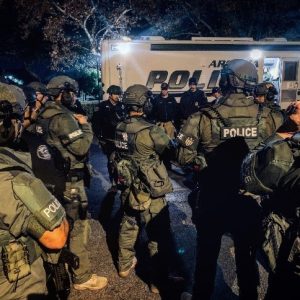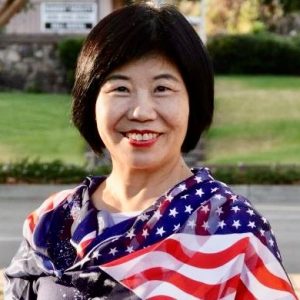 View Winners →
View Winners → Chinese American Equalization Association Demands Electoral Changes

Mayor Tom Beck says the city was unaware there was a problem, but is taking the matter seriously. – Photo by Terry Miller
By Katta Hules
Arcadia has been asked to change its electoral process. The HQH Chinese American Equalization Association (HQH CAEA) alleges the city is in violation of the California Voting Rights Act and should convert from at-large voting to a by-district system to allow more Asian American representation on the council. “My client is doing this in the best interest of the city … to make sure that everyone in the city has a say,” says the group’s attorney Richard McDonald.
Mayor Tom Beck says the city was unaware there was a problem, but is taking the matter seriously. They allocated funds to hire a demographics expert while Beck meets with Arcadia’s Asian leaders. “What I want to learn is, are they happy with the way things are? Do they want districts? What can we do to get more Asians on the city council?”
McDonald says HQH CAEA, a non-profit advocate group for a “united Asian American Community” according its Facebook page, has “received, over time, a number of complaints about the fact that there were so few Asian American city councilpeople.” There are a couple events contributing to the demand’s timing. “One, is I believe they did talk to the city earlier. Two, I believe there is a new law that created an opportunity for the city to address this.”
The law, last year’s SB 493, allows “a city with a population of fewer than 100,000 people to adopt an ordinance that requires the members of the legislative body to be elected by district” without going to the voters, the Bill states. As of last July, the Census estimated Arcadia’s population as 58,408 and 59.2 percent Asian.
The current at-large system allows any voter to vote for any candidate on the ballot. Elected officials then serve “the population of the city as a whole,” according to the National League of Cities website, a resource and advocate site for city leaders.
“If you are running at-large, you’re going to try to find the two or three thousand most likely voters, which … more often than not, are, only one geographic part of the city and so you end up then with one geographic part of the city electing the majority of the city council,” says McDonald, who served on Pasadena’s redistricting taskforce in 2001 and 2011.
Meanwhile, district candidates can only be voted for people in their area. “If you represent a district, you’re only interested in that district and what limited taxpayer money can you get for [it],” says Beck.
He is concerned districting could “polarize the city.” But, should Beck learn from analysis and outreach “that we have a problem, then I’m open to changing.”
McDonald says HQH CAEA wants to avoid litigation. “They hope everybody would agree it is a worthy goal and that is that by going to district elections, you improve your accountability, you improve your participation, you improve the overall transparency … make sure that everyone is getting represented.” However, they are prepared to pursue a lawsuit.











































































































